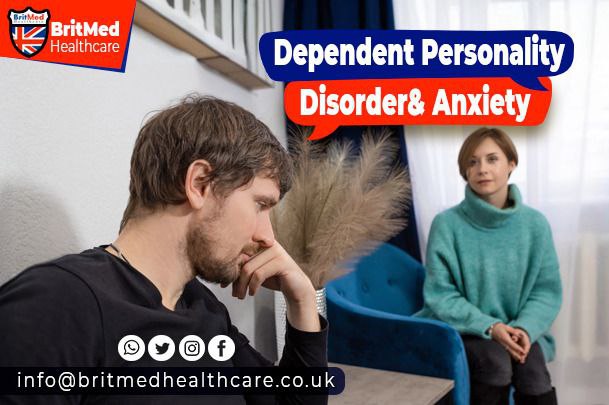Relationship Between Dependent Personality Disorder and Anxiety: What It Is, How to Recognize It, and How to Treat It
An unhealthy preoccupation with pleasing other people is a hallmark of Dependent Personality disorder, a psychiatric illness. People with this sort of anxiety often need other people to help them with everyday tasks because they feel so overwhelmed by feelings of rejection or uncertainty.
Some researchers have linked the following elements to the development of DPD, while the specific causes are still unknown:
Possible neurobiological causes include:
-Childhood trauma or neglect
-Heredity
-Extremely protective or overly critical parenting techniques
-Brain abnormalities in structure or function
Signs and symptoms of Tourette syndrome
The disorder is characterized by the following symptoms:
Feelings of anxiety or unease when confronted with uncertainty or rejection; low self-esteem and doubt; difficulty asserting oneself or setting boundaries; excessive need for validation and approval from others; incapacity to make decisions without guidance and reassurance from others; fear of abandonment or rejection; low self-esteem; and so on.
Identifying DPD
Clinical interviews, psychiatric evaluations, and observation of behavior all play a role in the diagnosis of DPD. The diagnosis is typically made by a mental health expert, such as a psychiatrist or psychologist.
Management of Dysfunctional Pancreatic Disorder
Psychotherapy, particularly cognitive-behavioral and dialectical behavioral therapy, and medication, particularly antidepressants or anti-anxiety medicines, are part of the treatment options for DPD.
CBT for Down syndrome
Individuals can learn to recognize and alter maladaptive patterns of thought and behavior through cognitive-behavioral therapy. Patients with DPD can benefit from cognitive behavioral therapy (CBT) in multiple ways:
Learn new coping mechanisms, improve your ability to make smaller decisions, boost your self-esteem and confidence, and recognize when you’re engaging in negative self-talk and assumptions.
DBT for Major Depressive Disorder
Emotional regulation, distress tolerance, and interpersonal efficacy are all areas that can benefit from the skills taught in dialectical behavior therapy (DBT). As a treatment for DPD, DBT can help individuals by:
-Acquire the ability to manage your emotions
-Uncertain acceptance and exclusion Better one’s ability to express self
-Enhance self-worth and self-assurance
Depression medication
If a patient is experiencing signs of depression or anxiety, their doctor may prescribe them medication to help alleviate those symptoms. Medications are used in conjunction with psychotherapy to treat DPD; however, they are not Lused alone.
In summary,
Worry and Reliance Due to the complexity of the mental health illness, DPD, comprehensive treatment is required. Being well-informed about DPD-its causes, symptoms, diagnosis, and treatment options is the first step toward recovery and improving one’s quality of life.
Add Websites related to the article:
Britmed Healthcare: https://britmedhealthcare.co.uk/blog/
Nightingale Hospital: https://www.nightingalehospital.co.uk/specialist/prof-ahmed-elmissiry/
Top Doctors UK: https://www.topdoctors.co.uk/doctors/prof-ahmed-el-missiry/
Contact Information: WhatsApp 08009708017
Reference:




